Wilbur Bills Elementary School serves 162 students in grades Kindergarten-5.
The percentage of students achieving proficiency in math was 90-94% (which was higher than the Michigan state average of 80%). The percentage of students achieving proficiency in reading/language arts was 85-89% (which was higher than the Michigan state average of 80%).
The student:teacher ratio of 18:1 was higher than the Michigan state level of 17:1.
Minority enrollment was 6% of the student body (majority Hispanic), which was lower than the Michigan state average of 37% (majority Black).
School Overview
Grades Offered
Grades Kindergarten-5
Total Students
162 students
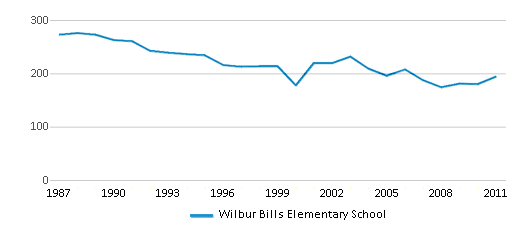
Total Classroom Teachers
9 teachers
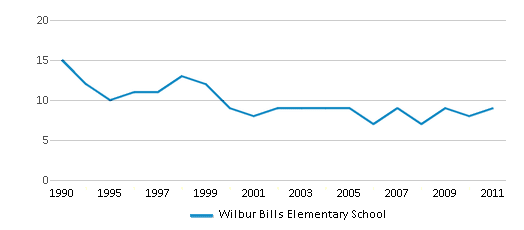
Students by Grade
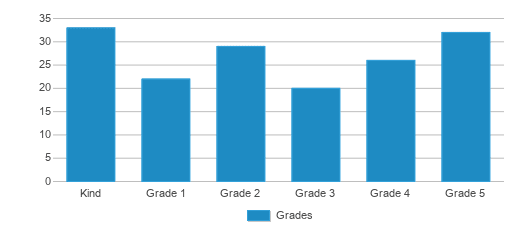
School Rankings
Math Test Scores (% Proficient)
(10-11)90-94%
80%
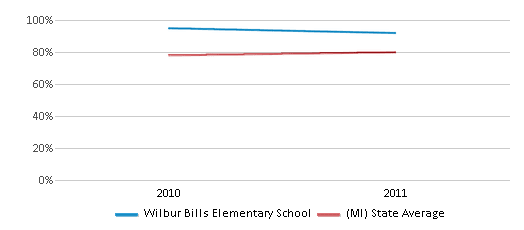
Reading/Language Arts Test Scores (% Proficient)
(10-11)85-89%
80%
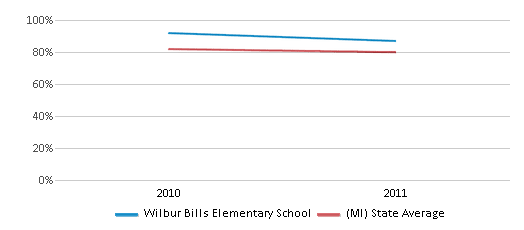
Student : Teacher Ratio
18:1
17:1
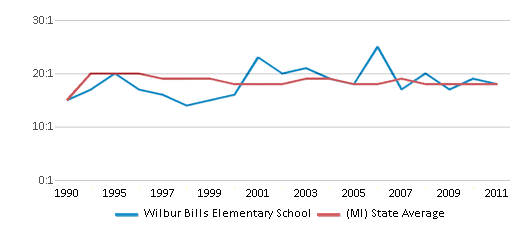
American Indian
n/a
1%
Asian
n/a
4%
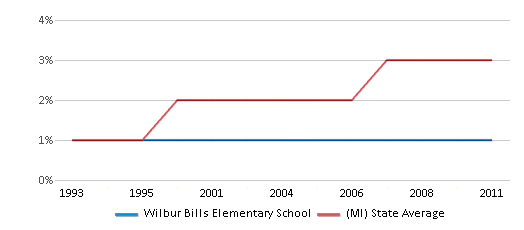
Hispanic
4%
9%
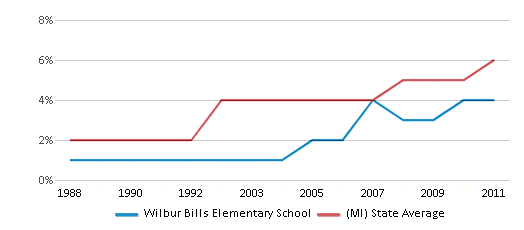
Black
n/a
18%
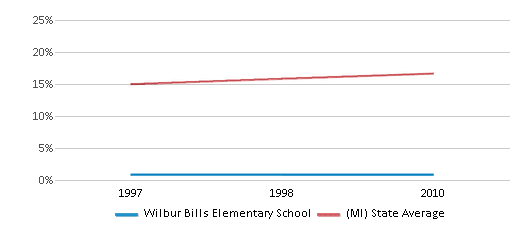
White
94%
63%
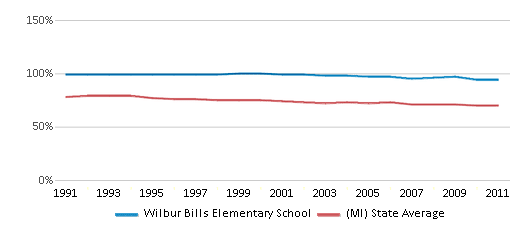
Hawaiian
n/a
n/a
Two or more races
2%
5%
All Ethnic Groups
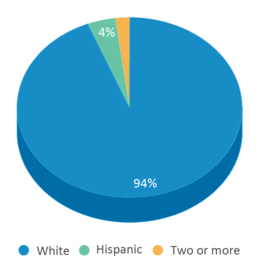
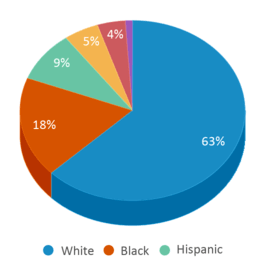
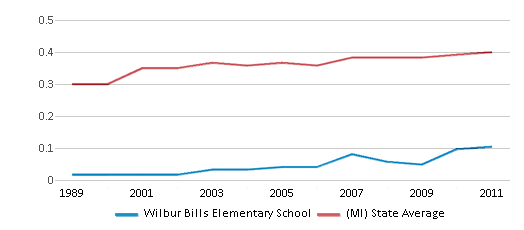
Eligible for Free Lunch
46%
50%
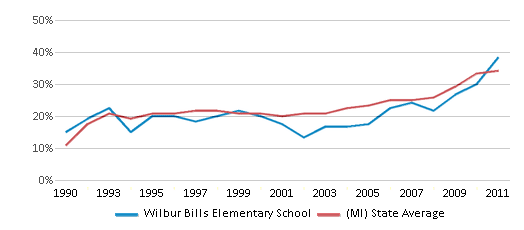
Eligible for Reduced Lunch
6%
4%
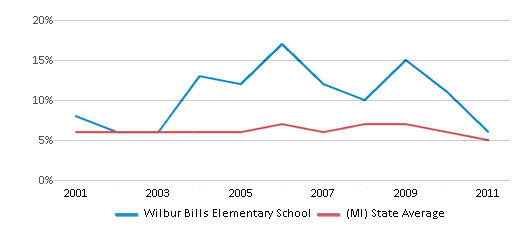
School Statewide Testing
School District Name
Source: National Center for Education Statistics (NCES), MI Dept. of Education
Frequently Asked Questions
What percent of students have achieved state testing proficiency in math and reading?
90-94% of students have achieved math proficiency (compared to the 80% MI state average), while 85-89% of students have achieved reading proficiency (compared to the 80% MI state average).
How many students attend Wilbur Bills Elementary School?
162 students attend Wilbur Bills Elementary School.
What is the racial composition of the student body?
94% of Wilbur Bills Elementary School students are White, 4% of students are Hispanic, and 2% of students are Two or more races.
What is the student:teacher ratio of Wilbur Bills Elementary School?
Wilbur Bills Elementary School has a student ration of 18:1, which is higher than the Michigan state average of 17:1.
What grades does Wilbur Bills Elementary School offer ?
Wilbur Bills Elementary School offers enrollment in grades Kindergarten-5
What school district is Wilbur Bills Elementary School part of?
Wilbur Bills Elementary School is part of Durand Area Schools School District.
Recent Articles

What Is A Charter School?
Explore the world of charter schools in this comprehensive guide. Learn about their history, how they operate, and the pros and cons of this educational innovation. Discover key facts about charter schools, including admission policies, demographics, and funding, as well as what to look for when considering a charter school for your child.

10 Reasons Why High School Sports Benefit Students
Discover the 10 compelling reasons why high school sports are beneficial for students. This comprehensive article explores how athletics enhance academic performance, foster personal growth, and develop crucial life skills. From improved fitness and time management to leadership development and community representation, learn why participating in high school sports can be a game-changer for students' overall success and well-being.

February 05, 2025
Understanding the U.S. Department of Education: Structure, Impact, and EvolutionWe explore how the Department of Education shapes American education, from its cabinet-level leadership to its impact on millions of students, written for general audiences seeking clarity on this vital institution.





